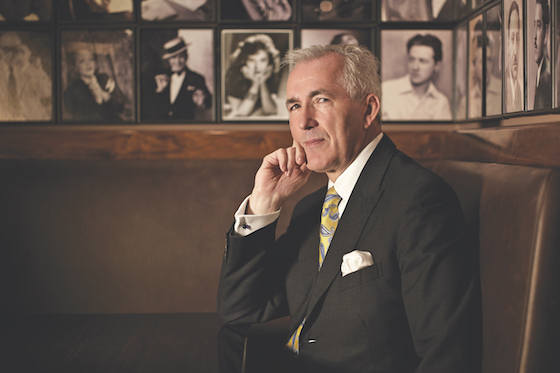Note: For HOTELS’ 50th anniversary issue in September, the editors called on industry leaders to offer their ideas about the current state of disciplines ranging from design and F&B to technology and investment. Today we present Jeremy King, director of Corbin & King, London, who writes about what it takes to open a successful restaurant – and what’s often missing from many F&B spaces today.
One of the most shocking aspects of the hospitality industry is just how inherently reactionary we are when it comes to change — although in many ways it can be our strength as well as weakness. We are also mired in plagiarism and the perceived necessity to copy existing precedents to a bewildering degree. When I made the transition from restaurateur to hotelier, I was taken aback by how often I was resisted when introducing new ideas on the basis that “that is not how it’s done.”
Whether it was on design decisions or customer interaction, whenever I queried why management wanted to implement something I would always be quoted a major operator that did it “that way.” We all copy each other, of course, but unless you do so with the aim of developing and innovating, all you end up with is homogenization—and the guests smell it and don’t want it.
There seems to be a prevailing belief that to break even on our F&B in hotels constitutes a good result, but I believe that if we are more rigorous in our decisions we can all do much better, both in terms of the experience we deliver and financially. In many ways the clue to the solution is in the title question itself because the starting point must be to think more like hoteliers rather than hotel owners. There is an inherent difference because hoteliers manage from the lobby—owners from the boardroom.

At a staff induction recently I was asked a recurring question: “What are the essential characteristics that make a good restaurant?” My answer is always consistent. The staff expected me to talk about location, design, chef, etc., but my response is always, “Two things: Heart and soul.”
Naturally, staff seeks clarification for this amorphous answer and it comes by way of explaining that it is possible to have the best of experiences in the simplest of environments as long as it feels genuine, sincere, authentic and not cynical. I am afraid too much of what we find in hotel restaurants is just the opposite.
I have some fundamental beliefs on how to open a restaurant. Naturally these can’t be adhered to in every hotel operation but I do feel the fundamental flaw is that we don’t analyze whom we, the guests or local residents, actually are and whether we are framing our offer appropriately.
The starting point my business partner Chris Corbin and I have always used is that we would open restaurants we would like to go to ourselves. That can apply whether you are a budget or 5-star hotel because if we don’t believe in it, why on earth would the guests?
One of the most impressive exponents of this is CitizenM Hotels, which offers a contemporary self-service, 24-hour approach to their guest needs in line with their innate understanding of what their young demographic is more attuned to.
It is also important to be inspired by the building itself, as too often I see inappropriate concepts imposed on environments. This often comes from hotel ownership throwing in the towel and inviting operators in a desperate bid to rid themselves of the problem. It can work but is no panacea.
So my suggestion is not groundbreaking. Your F&B doesn’t have to necessarily be innovative, just appropriate. Understand inherently your building, your guest base and your capability, and ask yourself what you would want or expect if you were staying at your hotel — if it belonged to someone else.
Looking forward, I am hesitant to predict trends, as we have never been “trendy,” particularly when it comes to food, but these days it seems to me that you must be locally relevant, have a keen eye on the sustainability of your supply chain, and focus on ingredients that are natural and minimally processed. And what never goes out of fashion is a well-trained front of house team that truly connects with your guests as that is where the “heart and soul” resides.
Contributed by Jeremy King, director, Corbin & King, London
